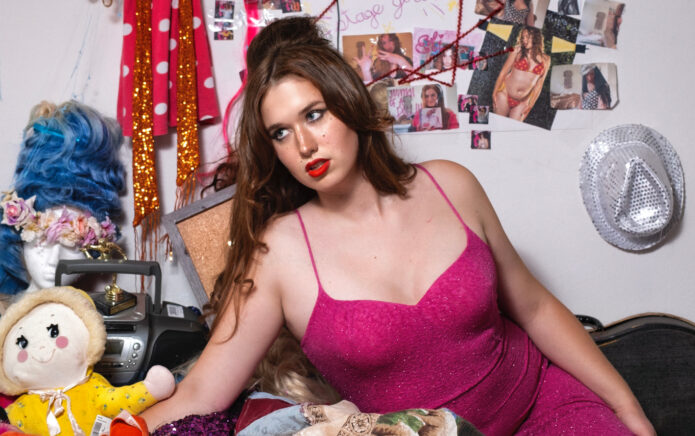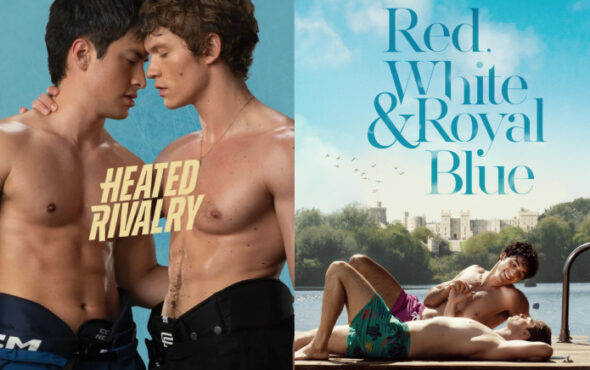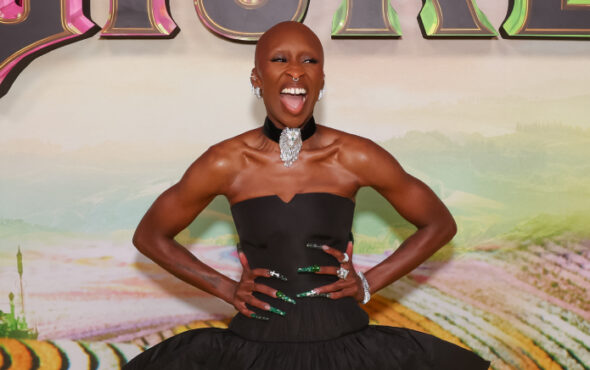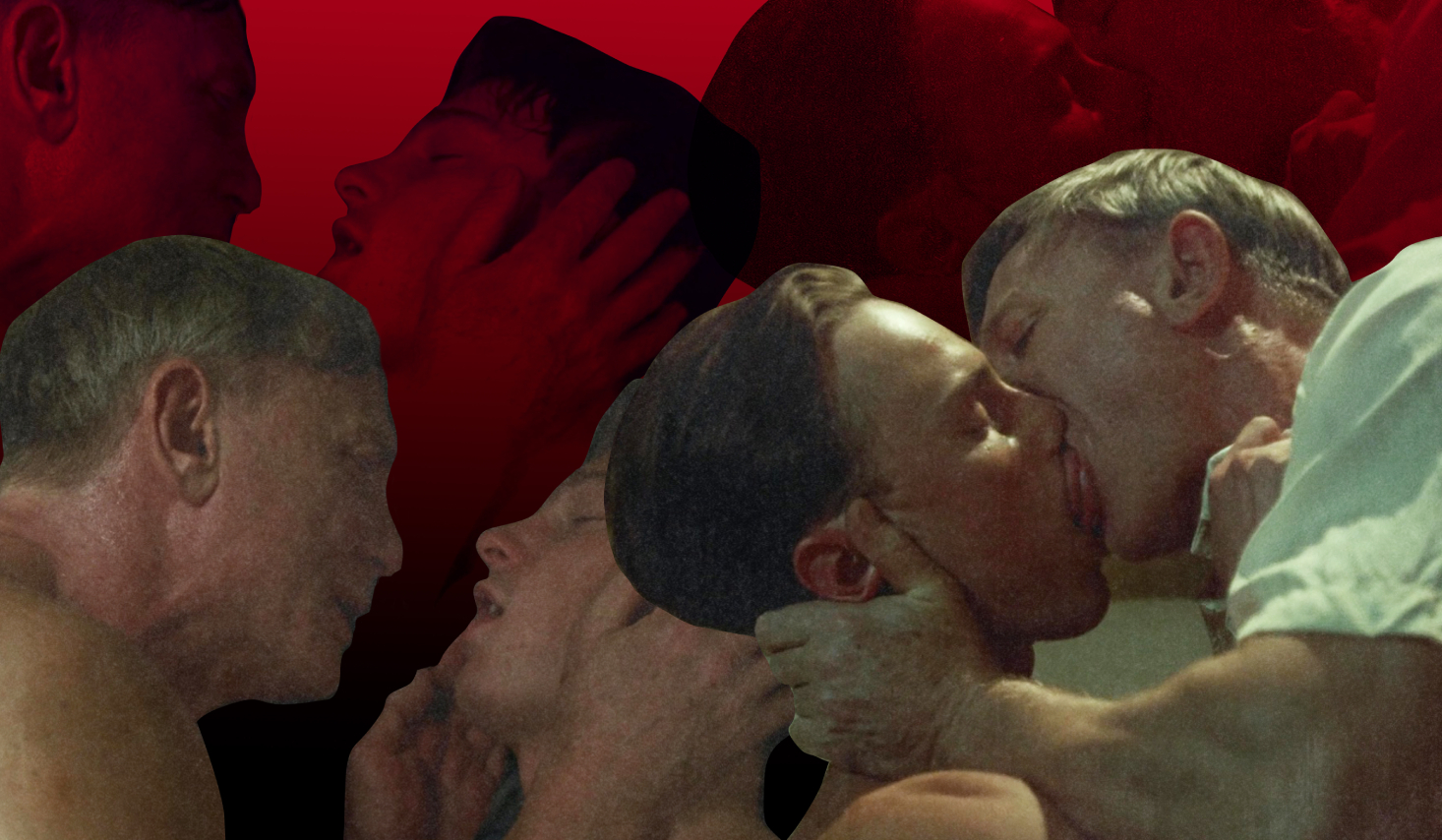
From the tennis-thruple dynamics of Challengers to the telepathic eroticism of Daniel Craig and Drew Starkey’s “unsynchronised love” in Queer, Justin Kuritzkes’ introduction into the film industry has been rather rainbow-hued.
Both acclaimed films, directed by Academy Award nominee Luca Guadagnino (Call Me By Your Name), were immediately thrust into the pop zeitgeist (and Gay Twitter) as a result of Zendaya, Mike Faist and Josh O’Connor’s sizzling chemistry, as well as Craig and Starkey’s explicit sex scenes.
Praised by critics as Craig’s finest performance and a breakout moment for Outer Banks star Starkey, Queer is now available to stream in the UK on MUBI. In this interview, we speak with Kuritzkes about his “rare” partnership with Guadagnino— a third collaboration, based on DC Comics character Sgt. Rock is on the way!—and Allerton’s true feelings for Lee, as well as his interpretation of Queer’s abstract finale.
Justin, congratulations on the year you’ve had with both Challengers and Queer. This is such a rainbow-hued introduction into the industry for you?
It’s been lovely. Challengers was a film that embraced the idea that, in a love triangle, desire flows in all directions. In the friendship between characters like Art and Patrick, they’ve grown up and gone through puberty together. They were kind of orphans, sent away by their families to live in this tennis academy, spending their whole lives playing against each other. To me, that felt like a well of pent-up repression. As for what that repression specifically looks like, I don’t think the film is necessarily concerned with it on an identity level. But it was definitely something Luca responded to. Then Queer is a film I simply wouldn’t have written without Luca. It was a movie that was important to him, something he’d wanted to make for a long time. When a director like Luca asks you to be part of his filmography twice, you don’t say no, because that’s all we have—our filmography. To be part of that is the greatest honor.
How did your partnership with Luca come to fruition?
With Challengers, I had never written a film before, and I had no idea who I would eventually make it with. No one knew I was writing it—I just did it. I finished the script, and through my agent, sent it to a bunch of producers, eventually deciding to work with Amy Pascal and Rachel O’Connor. They were really the ones who got it into the hands of Zendaya and Luca. First of all, I was a massive fan of Luca’s work, so when I heard he had read the script and was interested, I was over the moon. In our first conversation, it was immediately clear to me that he was one of my people. We spoke the same language. We were thrown right into the process of making the movie almost immediately.
The space between writing the first draft of the script and getting into pre-production was only about five or six months, which is crazy. So, we had to get really close, really fast. Then, while we were in the thick of making that movie, another amazing thing about Luca happened: he didn’t just invite me to be on set and in rehearsals—he demanded it, which is very rare, though it shouldn’t be. It was incredibly generous and confident of him. But through my time on set for Challengers, one day he handed me the book for Queer and said, ‘Read this tonight and tell me if you’ll write it.’ And that was it.
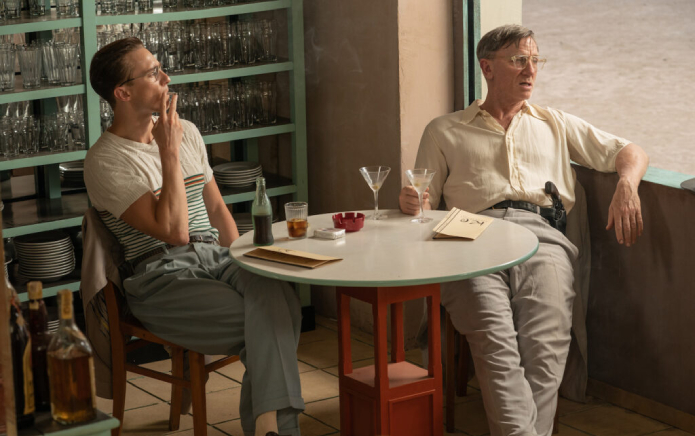
What I loved about Queer is that it’s more than just a romantic drama, featuring abstract and surreal elements. How do you think those elements move William and Allerton’s story forward?
To a large extent, it’s about these two people who are trying to connect and finding the language to connect. It becomes the case that, the way they connect, is beyond language. There’s a lot of talk about telepathy in the book and the movie. The journey they’re on, that eventually takes them into the jungle in South America, is about searching for a drug they hope will open a channel between them, so that they can speak on the level of intuition. And so to tell a story like that, you need to push beyond strict realism because that’s how you get to what’s really going on emotionally. You need to go beyond what appears to be going on on the surface of reality.
Queer was written by William Burroughs in the 50s, but not published until the 80s. Did that impact how you adapted the novel?
It was really important for me to meet the book on its own terms. If you approach the book too sharply from a contemporary point of view, there’s a lot of the book that you would quickly do away with and change. I really wanted to understand who these particular people in this particular place at this moment in time were, and that’s because I had never met these people before: this American ex-pat, queer community in Mexico City in the 1950s. It’s such a strange and particular group of guys that didn’t talk like anybody I’ve ever seen in literature before. Their lives didn’t consist of things that made sense to me in a contemporary way.
Yet, I found that even within these very particular circumstances, the emotions between Lee and Allerton and the psychology between them was something I could relate to instantly. The way that Lee longs, almost like an adolescent, felt incredibly relatable to me and sweet and embarrassing and tender, and that really surprised me. So, that’s always what’s interesting about finding your way into a story. What are the things that are just like your life, and what are the things that have nothing to do with your life?
View this post on Instagram
Queer has made headlines for its intimate scenes. How important was it to ensure these sequences felt essential to Allerton and Lee’s story, rather than gratuitous?
It’s really important to me, generally, but especially in this film, that any intimate scenes are scenes that are revealing of character, and where there’s something at stake for both people involved. In the case of Challengers, three people involved. At least when I was growing up, there was a tradition of sex scenes where there’s a montage and music starts to play with a saxophone and it’s like a break from the movie. You’re watching the story and then there’s a sex scene, like this little music video within the movie. That is completely cinematically dead, to me. So, it was very important to me that the movie is still happening there, and that’s the only place the movie could go, that it’s necessary in order to get the story because this is a movie about people trying to connect. That’s one way people connect.
When it comes to the actual writing of it, I feel, and this is just my philosophy, that it’s your responsibility as the screenwriter to be as specific as you can be, to the extent that it’s about the story. You’re going to have to ask people to perform this. You’re going to have to ask people to like this. You’re going to have to ask people to hold a boom mic for it. It’s not just cowardly, it’s incredibly irresponsible not to be willing to go there yourself. I have the least difficult job when it comes to that.
There’s been a lot of fan speculation about the true meaning behind Allerton and Lee’s romance—whether Allerton was genuinely romantically interested in Lee. For me, it was pure love. What’s your take on it?
Well, I really love that interpretation and I’ll steal a phrase from Luca that he’s been using to describe this movie: “It’s not a movie about unrequited love, it’s a movie about unsynchronised love.” So much of this movie is about these two people trying to get in sync, but then they can’t often sustain that for very long. There are moments where they are totally in sync, and then they very quickly snap out of it. One of my favourite lines in the movie is from Burroughs, when Lee is stroking Allerton’s face after they’ve been in bed. He asks, ‘You do enjoy it sometimes?’ and Allerton, completely sincere, responds, ‘Oh yes.'” It’s kind of the first time he’s said that in the movie, and it’s this beautiful moment of them completely recognising each other. The very next scene is Lee trying to approach Allerton in the morning and he throws him to the ground. To me, that’s the movie and that’s their relationship.
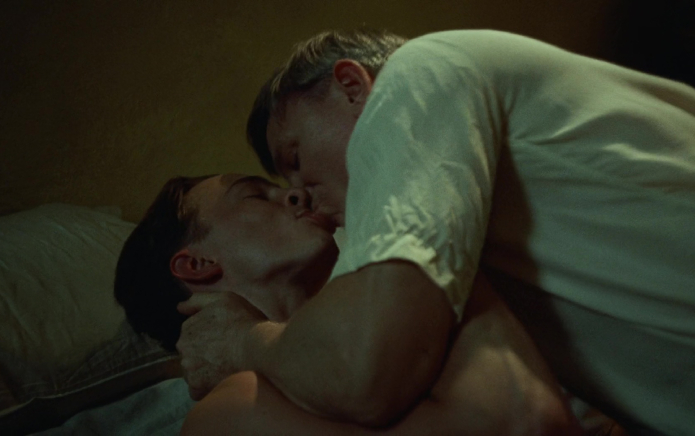
Additionally, there have been many theories about why Allerton fled after his ayahuasca trip with Lee. To me, he disappeared because he had an epiphany about his sexuality and his love for Allerton. How did you interpret that?
I think that what you’re saying makes a lot of sense. There is something about that encounter and that extended sequence of being in sync with this other person that is too much for Allerton to take. I think it’s essential in that scene that there’s a witness to it in Leslie Manville’s character, which is when she says to him, “We all saw what happened, we all know where you went last night and you can’t turn away from it.” But, Allerton does. To some extent, that’s open to interpretation of what is actually going on within Allerton, but what’s undeniable to me is that, in that moment of the ayahuasca trip, there is this real telepathy.
One of the most interesting lines in the film is, “I’m not queer, I’m just disembodied.” What do you think that means?
That line, though from the book, isn’t in the movie in the exact same places. When I first read it in the book, it really took the wind out of me because it felt like whatever Lee’s relationship to himself is, it’s somewhere in there. Writing the movie, I knew that I was going to depart from the book, that they were going to get the ayahuasca and have this moment of telepathy. The whole time I was thinking, ‘What could I possibly have them say to each other when they’re telepathically communicating?’ because it’s very daunting. It occurred to me that Allerton should say that phrase back to Lee. It’s almost a bit of a fake-out where Allerton says “I’m not queer” and Lee says “I know”.
The audience would think, ‘Oh no! This whole time it turns out that Allerton can’t be with Lee because of his identity or sexuality.’ It’s this very simple thing of, ‘It’s not going to work because I’m not like you.’ Then, he says “I’m just disembodied” and hopefully the audiences understand that, actually, the problem is they understand each other too well. Whatever Lee’s relationship to himself is very similar to Allerton’s relationship to himself, and they’re communicating on this much deeper level than any of the boxes that the world might put them in.
Queer is now streaming in the UK on Mubi.
